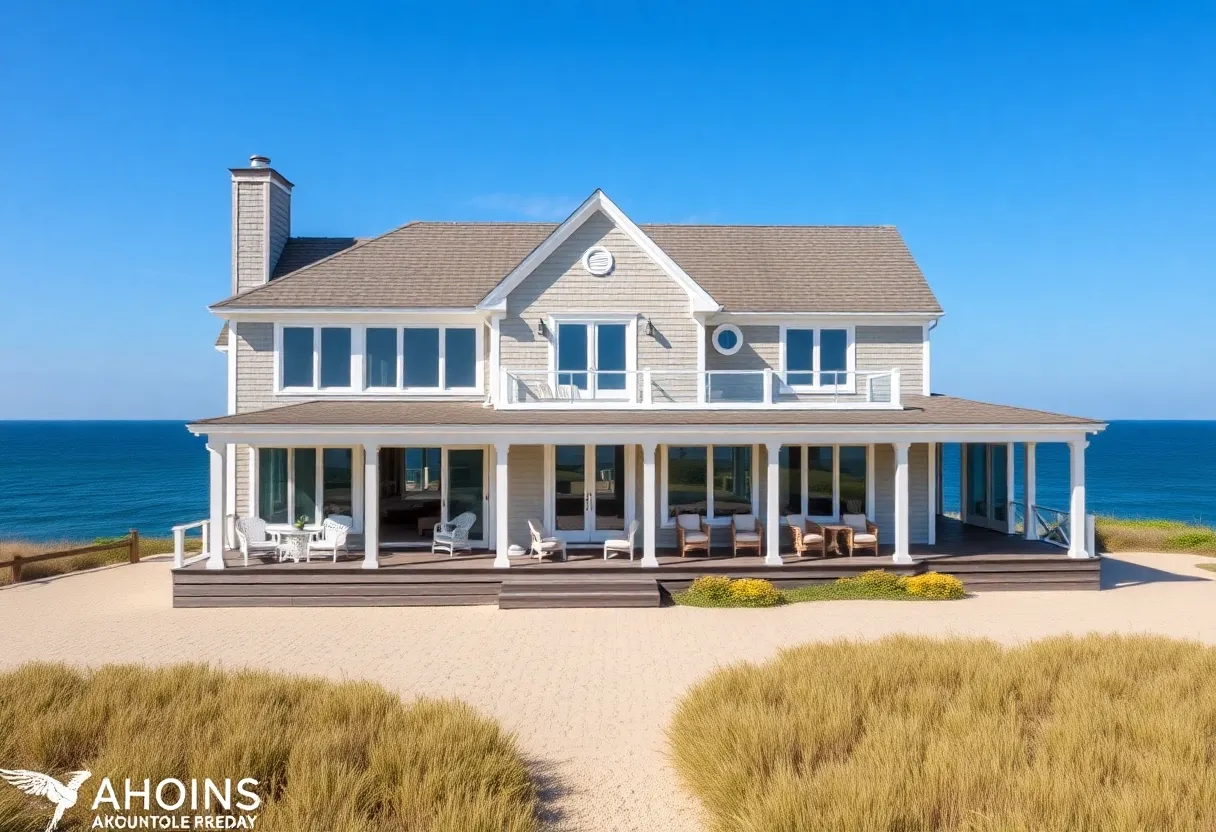News Summary
Rhode Island has implemented a new annual property tax, informally known as the ‘Taylor Swift tax,’ aimed at non-owner-occupied homes valued over $1 million. This initiative, part of the state’s budget to improve housing affordability, will charge owners an additional $2.50 per $500 of property value above the threshold. Starting in July 2026, the levy aims to ensure wealthy property owners contribute to local housing efforts while exempting properties rented for more than 183 days a year. This move may influence similar tax policies in other states grappling with housing crises.
Rhode Island Introduces New Tax on Luxury Second Homes
Rhode Island has introduced an annual levy, informally known as the “Taylor Swift tax,” targeting non-owner-occupied properties valued at over $1 million. Set to begin in July 2026, this tax is part of the state’s latest budget aimed at addressing the growing issue of housing affordability for local residents.
Under this new property tax structure, owners of luxury second homes will be charged an additional $2.50 for every $500 of property value exceeding the first $1 million. For example, a beach house valued at $2 million would incur approximately $5,000 in annual taxes. The tax threshold will also be adjusted for inflation starting in mid-2027 to maintain its intended impact over time.
Properties that are rented for more than half the year, specifically 183 days or more, will be exempt from this new levy, ensuring that investors who contribute to the local rental market are not burdened by extra taxes.
Targeting Wealthy Non-Residents
The initiative is designed to make wealthy, non-resident property owners contribute more significantly to local housing efforts. The popular nickname “Taylor Swift tax” stems from the singer’s ownership of an expensive mansion in Watch Hill, Rhode Island. However, it is important to note that this tax applies to all luxury second homes, regardless of ownership.
Rhode Island’s approach to taxing expensive properties may set a precedent for other states grappling with similar housing affordability issues. Montana, for example, is momentarily planning to revise its property tax system to impose higher charges on second homes and short-term rentals beginning in 2026. Similarly, leaders in Cape Cod, Massachusetts, are considering a regional transfer fee for high-end real estate transactions to bolster housing support.
Support and Opposition
Supporters of the “Taylor Swift tax” argue that this tax structure aims to target wealth concentrated in luxury real estate without imposing additional financial burdens on local families. They believe that the additional revenue generated could be redirected to improve housing supply and affordability for year-round residents.
However, critics express concern that this tax could scare away high-value buyers, potentially damaging local economies that depend on affluent seasonal residents. Many resort towns thrive on the patronage of wealthy owners, and a decrease in their numbers could have adverse effects on local businesses and employment.
A Growing Trend in Taxation
The implementation of such mansion or second-home taxes is gaining traction among local councils and state governments as a viable strategy to tackle pressing housing affordability challenges. With increasing home prices and a competitive real estate market, similar tax measures may be adopted more widely across the country.
Despite its intentions, uncertainty remains regarding whether the “Taylor Swift tax” will indeed generate the expected revenue. Furthermore, there are questions about whether it might lead more luxury properties to become year-round rentals, thus alleviating some housing pressure, or if it will simply encourage affluent buyers to seek properties in alternative locations with fewer restrictions.
As Rhode Island moves forward with this legislation, its impacts on local housing markets and community dynamics will be closely monitored, potentially shaping future discussions about taxation and housing policy elsewhere in the nation.
Deeper Dive: News & Info About This Topic
- Airports International: CANSO Welcomes New Director of European Affairs
- Wikipedia: European Affairs
- Foreign Affairs: Europe Could Lose What Makes It Great
- Google Search: European affairs
- Washington Post: David Herszenhorn Named European Affairs Editor
- Google Scholar: European affairs
- Reuters: China Names Lu Shaye Special Representative for European Affairs
- Encyclopedia Britannica: European Affairs
- TVP World: Analysis: Brussels Braced for Another Polish Puzzle
- Google News: Brussels

Author: STAFF HERE PROVIDENCE WRITER
The PROVIDENCE STAFF WRITER represents the experienced team at HEREProvidence.com, your go-to source for actionable local news and information in Providence, Providence County, and beyond. Specializing in "news you can use," we cover essential topics like product reviews for personal and business needs, local business directories, politics, real estate trends, neighborhood insights, and state news affecting the area—with deep expertise drawn from years of dedicated reporting and strong community input, including local press releases and business updates. We deliver top reporting on high-value events such as WaterFire, Rhode Island International Film Festival, and Rhode Island Comic Con. Our coverage extends to key organizations like the Greater Providence Chamber of Commerce and Providence Warwick Convention & Visitors Bureau, plus leading businesses in finance and manufacturing that power the local economy such as Citizens Financial Group and Textron. As part of the broader HERE network, we provide comprehensive, credible insights into Rhode Island's dynamic landscape.





